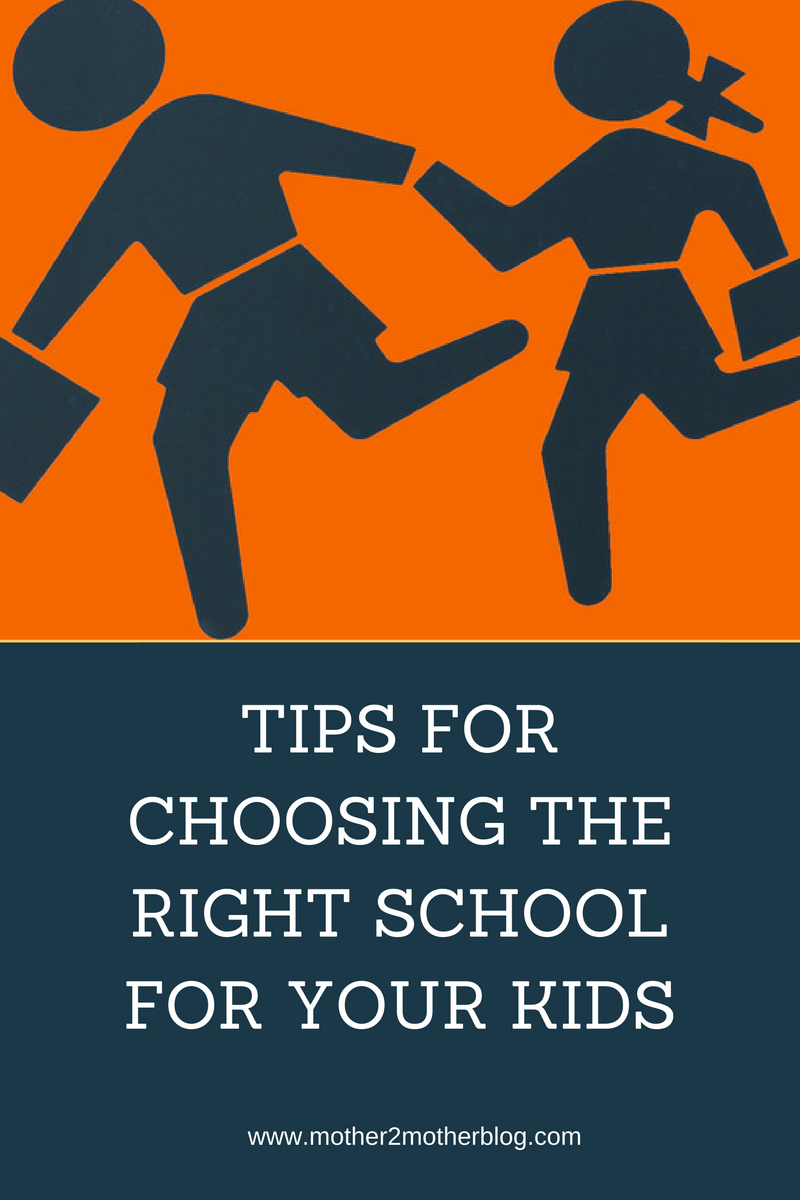You can’t mess around when it comes to your children’s education. It’s really vital that you pick a school that is going to give them the best capacity for learning over a long period. Today, I’m sharing tips on selecting schools for your children. These are some of the factors you need to consider when choosing the right schools for your children. Also, be sure to check out my other parenting tips before you go.

The Location
Making a decision on schooling means you need to think hard about location. It’s important to choose the right school, but you also need to know what is in your area. Generally speaking you will only be able to apply to schools that fall within your area. The school needs to be reasonably accessible from where you live. It’s important for your children to be able to make friends with kids who live locally. That’s why you need to consider the location before you choose the school.

Syllabus
Another thing you might like to consider is the syllabus that each school presents. These will probably end up being pretty much the same across the board. The government tends to set the syllabus, and the schools just teach them. However, they can choose the framework with which they present and teach the syllabus. Some schools will have more exciting ideas than others. Think about the sort of syllabus your kid might enjoy. In fact, when you go to view some schools take your kids with you to give them a feel for what they might like.

Pass Rate
The point of children attending school is to learn, study, and get the best possible grades they can. That’s why it’s useful to look at a school’s pass rate when considering whether it’s right for your child. Of course, you’re going to want to choose a school that has an impressive pass rate. Though, some institutions will excel in certain areas, and not in others. So, it’s worth thinking about what matters to you, and what is important for your kids. The pass rate is a key factor, but you have to understand it’s not the be all and end all. It’s much more important to choose somewhere based on a combination of factors.
Facilities
Another one of our tips for selecting schools is the facilities. It would be best to pick a modern school that has recently been built, or undergone a major face lift. You have to look at how strong each department is within the school. What’s the layout like? Do they have a gymnasium and sports field? Are there plenty of toilets? Most importantly, is the school as safe as it can be? Studies have proven that facilities can greatly affect student outcomes and teaching methods. So, you need to be sure you’re choosing an institution with wonderful facilities.

Reputation
Making a decision about where to send your kids will be based a lot on reputation. Doing your homework is one of the most important tips for selecting schools for your children. School is such a pivotal institution in the lives of children, and can help shape their future. That’s why reputation is so important, and you’ve got to make sure you choose the school with the best reputation imaginable. That means you have to do your homework and scrutinize a school’s reputation and performance. Does it seem like the right sort of fit for your child? If the answer is yes, then it’s a good place to enroll them. If the answer is no, then you will need to look into other schools instead.
Equipment
Assess the equipment the school has is another one of our tips for selecting schools. Attending open house should allow you to take a tour of the school and quiz them on the equipment they have there. It’s really important to choose an institute that’s equipped to serve the needs of your children, and helping them to learn. For instance, you’re not going to want to choose a school with a shortage of classroom chairs or desks. This is going to have a negative effect on the capacity for learning. So it’s really important that the school be well stocked and professionally run, with a focus on the children.

Who Else Goes There?
It’s also important to consider the company your children will be keeping. This sort of links to the point about reputation, as well as a little about location. It’s important that you know the children your kids will be interacting with. Do you have any friends who are sending their kids to a specific school? Do your children get along well with some of the kids who may be going there? It’s essential that you consider who else goes to the school you want to send the kids to. This is an important decision to make, and will help you decide on the best school for the children.
Home Schooling?
You may even make a decision that you don’t want to send your kids to any school. Instead, you may wish to home-school them. There are a variety of reasons why parents home-school their kids. Close to 2 million American children are home-schooled, so it’s certainly a popular choice for a lot of parents. Think about whether you’re the type of person to choose distance learning for the children. There are positives and negatives to either argument. Remember if you’re home-schooling the kids, you’re going to need to take time out to actually teach them. They aren’t going to be able to do it themselves. It’s going to be hard work for you just as much as it will be for them.

Choosing the right school or learning institution for your kids is really important. They need to get the best possible education they can so they have good opportunities. That’s why it’s important to think hard about this choice and make it as carefully as you can. There are so many factors to consider when it comes to choosing a school. Hopefully, you will find this list helpful when trying to choose the right school for your kids.
It’s vital that you pick a facility that is going to give them the best capacity for learning over a long period. These are some of the factors you need to consider when choosing the right school:

 Jessica Freeman is passionate about teaching and journalism. She finds her calling in making others interested in topics of education, children upbringing, and academic developments. You can follow her on
Jessica Freeman is passionate about teaching and journalism. She finds her calling in making others interested in topics of education, children upbringing, and academic developments. You can follow her on



